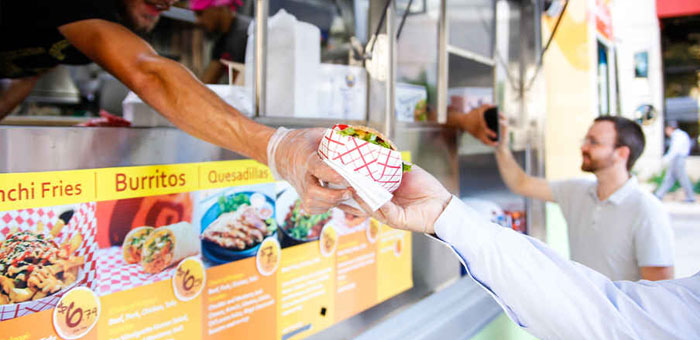Running a food truck can be tough. The differences between making it and breaking are very thin. As the owner, you have a lot on your plate. You are the food truck manager and have to handle everything, from training and supervising employees to running budgets and purchasing new equipment and supplies. Today we will cover the difficult task of food truck scheduling and keeping employees happy while at the same time, keeping your staffing numbers at the proper levels.
The Art Of Food Truck Scheduling
Payroll is the largest single expense category for most food trucks. Because of this, it is extremely important to manage this expense effectively. On the other hand, the staff members you employ are what make your business tick and your personal connection with these people is an important dynamic. Balancing personal relationships with labor cost management is one of the more difficult aspects of being a food truck owner.
4 Simple Food Truck Scheduling Tips
- Evaluate how much work needs to be done. As you know different times of day, days in a week, and times of month and year can see very different sales volumes. One of the most common mistakes made in food trucks is over-scheduling. The key is that you won’t know how many people to schedule unless you can predict sales volume on a given day. Keep a record of sales so that you can evaluate when your peak sales periods are.
- Go through a list of your available staff and rank them according to ability. It’s very important to be objective and put personal relationships aside and create an accurate ranking. Once you can predict sales peaks and valleys, and know the number and quality of staff available to you, you can start creating a schedule that will meet peak demands without having to pay extra staff.
- Scheduling is a fine art. You have already ranked your employees and know when peak demand times will occur. Now it’s time to start matching staff with sales volume. The trick is to make sure you always have top performing staff around for busy times, which will allow you to reduce the overall staff scheduled for peak sales periods. Top employees perform many different tasks efficiently, and can help less experienced staff members so you don’t have to.
- Update your schedules periodically. Keep an eye on your sales number and employee performance. Over time factors such as sales and staff performance will change, and you’ll need to adjust your scheduling accordingly.
The Bottom Line
Your employees are the heart of your food truck business, and you want to make sure they are there when you’re making the most money. On the other hand, less experienced staff are never going to develop into superstars if they always have someone there to hold their hand.
Use slow and moderate sales days to schedule these employees and give your top staff the day off. You can take advantage of the relatively slow activity to train and get to know your newest staff members, improving retention and performance during peak times.
RELATED: Food Truck Schedules: An Easy And Efficient Process
Food truck scheduling should be an ongoing process that you constantly refine to make sure your mobile food business is maximizing sales. How do you handle food truck scheduling? Share your thoughts on this topic in the comment section or on social media. Facebook | Twitter




